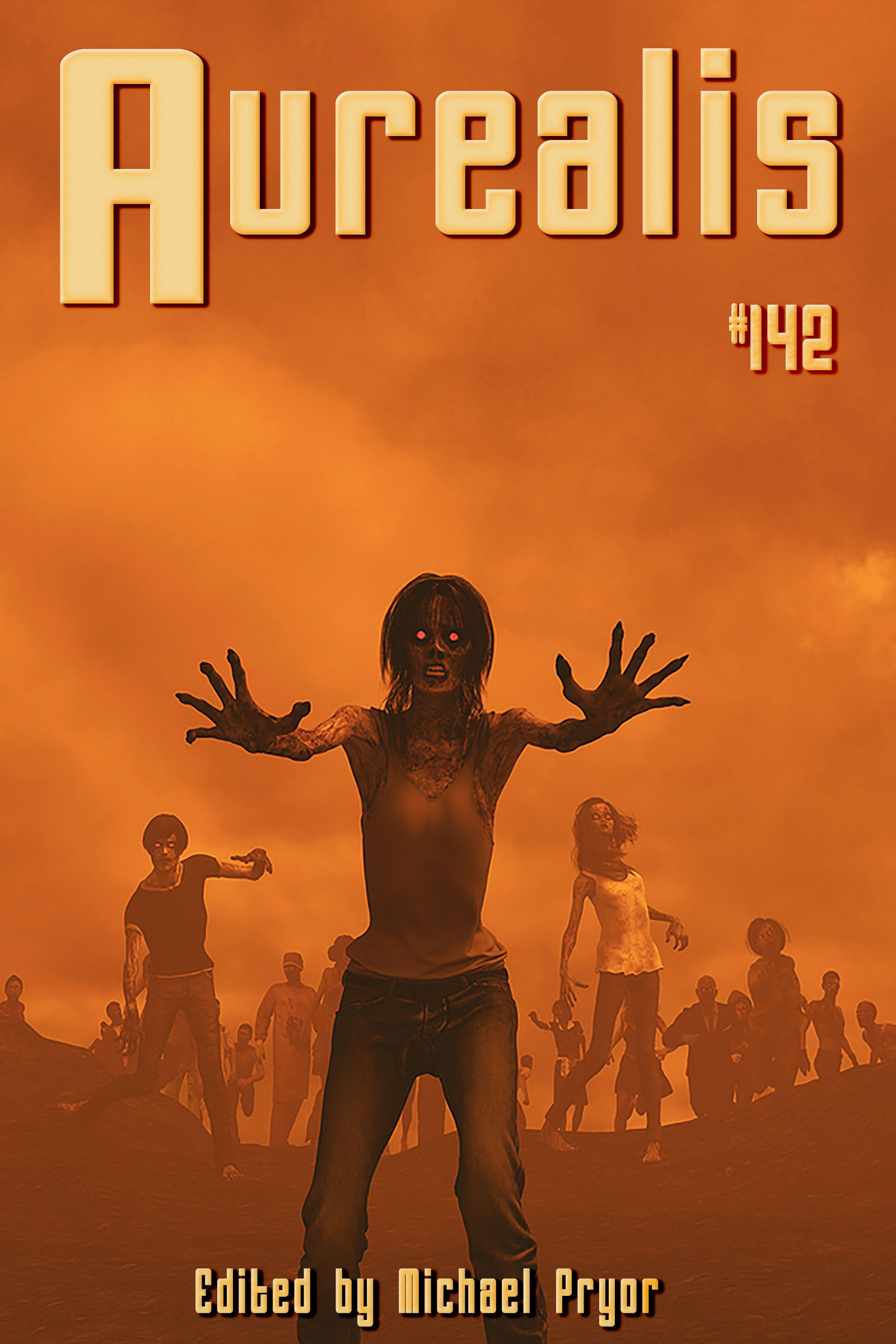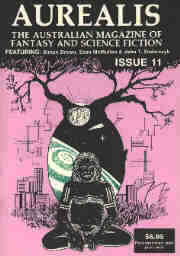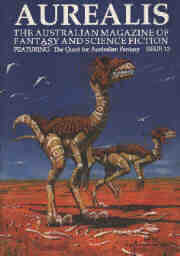Aurealis #142
$3.99
Aurealis #142 presents ‘The Martian Diary’ from Stuart Bullock, ‘The Gene Witch and the Orchard’, ‘Access Denied’ from Baden Chant. Our non-fiction features Claire Fitzpatrick’s deep dive into Anne Rice’s Science Fiction and Lachlan Walter’s robust exploration of cannon, continuity and creativity. Plus, non-fiction, reviews and stunning internal art! Aurealis: we bring you many worlds.
- From the Cloud — Michael Pryor
- The Martian Diary — Stuart Bullock
- Access Denied — Baden M Chant
- The Gene Witch and the Orchard — Phil Dyer
- Anne Rice’s Delve into Science Fiction — Claire Fitzpatrick
- Breaking the Shackles of Canon and Continuity — Lachlan Walter
One percenters
Over our thirty years of publishing, the Aurealis editors have read hundreds, possibly thousands of submissions. From this, we’ve seen many ways to create a successful story, and many ways to create an unsuccessful story—see the editorial in Aurealis #71 for our discussion of the latter, and the editorial in Aurealis #72 for our suggestions for the former.
Those editorials looked at substantial approaches and techniques for story writing, reasonably big picture stuff. At the other end of the scale are the nitty-gritty ‘one percenters’ that can add polish to your story, to make it sound more professional and to avoid wince-making moments. Here are some we’ve gleaned over the years.
- Avoid fluffy intensifiers (incredibly, amazingly, unbelievably).
- Be careful of ‘really’ instead of ‘very’.
- Adverbs are not your friend (see Stephen King).
- Use contractions in dialogue.
- Avoid sentences that start with ‘As you know, Brian …’.
- Be careful using sentences that start with ‘There was …’.
- Avoid characters having names that start with the same letter.
- Get the main character’s name into the first paragraph.
- Don’t be afraid of using ‘said’ in dialogue attributions.
- Learn the difference between the comma and the full stop.
- Don’t take the descriptive shortcut of comparing a character to a famous film star.
- In fact, don’t take descriptive shortcuts at all.
- Find ways other than using adjectives to describe.
- Be careful of using two ‘ands’ in a sentence. ‘He went down to the shop and saw a chook and he was surprised.’.
- Avoid the overuse of alternative descriptors (Joe, the red-haired boy, Bill’s best friend, the joker).
- Be very, very wary of including a dream sequence.
All the best from the cloud!
Michael Pryor
From The Martian Diary by Stuart Bullock:
20 July 2093
Dear John,
Introductions are interesting, except when adults do them. I cringe when Dad introduces me to others. He always says something asinine, like: ‘Pleased to meet you. This is my daughter, Posie,’ and then I want to be anywhere else. To being, my name is Posie, as in the nursery rhyme, and no, you can’t think of a joke about it that I haven’t heard already.
From Access Denied by Baden M Chant:
The dome bustles.
The night lit up. ‘Paipai no kamisama!’
Haru stood blinking, half-blinded as his eyes adjusted to the contacts. The world they’d revealed was desaturated, like a heavily overcast day. The sky and water were grey, and the bluffs looked black and threatening, but he could see what he needed. The waves were rolling in—beautiful, clean, overhead, and all his.
From The Gene Witch and the Orchard by Phil Dyer:
The gene witch would not be bought, but exotic fruits could make her more amenable to supplication. She sat and spun the thorny melano in her hands as the farmer recited his troubles, his nervous family hovering anxiously on the threshold.
From Anne Rice’s Delve into Science Fiction by Claire Fitzpatrick:
If you ask someone today, there’s a high chance they’ve heard of Interview with the Vampire (1976), even if they haven’t read it or seen Neil Jordan’s 1994 film adaptation of the same name. And if you ask them if they’ve heard the name Lestat, they’d likely say yes, even if they’re not quite sure where they heard it, or that it’s the name of one of fiction’s most famous blood-drinking immortals. It is this longevity, this lasting impression on the world of fiction, and pop culture, that cements Anne Rice (1941–) as one of the most recognisable and popular authors of horror and historical fiction. And yet while she’s more known for her horror and religious themes, it might come as a surprise to those who haven’t read her books that she’s also delved into the realm of science fiction, even before her rebirth of her vampire brood in her Prince Lestat books, first published 11 years after Blood Canticle (2003), deemed the ‘conclusion’ of her Vampire Chronicles series.
From Breaking the Shackles of Canon and Continuity by Lachlan Walter:
If canon/continuity are so integral to a story as to cause problems for its overall narrative, that story has more-than-likely been popular enough to run for years and years—think Doctor Who (which began in 1963), Star Trek (which began in 1966), Star Wars (which began in 1977) and the innumerable titles populating the stables of Marvel and DC comics. However, this longevity can also be a curse, because series such as these involve multiple writers who must adhere to the already-established canon/continuity to avoid contradicting previous events, character developments and interpersonal relationships. When a series has been running for more than fifty-years, as is the case with Doctor Who and Star Trek, this is no mean feat; when it’s been running for more than seventy-years, as is the case with Batman and Superman, this is almost impossible.




